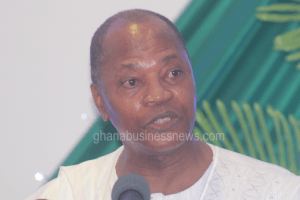
Dr Mohammed ibn Chambas, Special Representative and Head of the United Nations Office for West Africa, has added his voice to calls for swift disbanding of political vigilante groups in Ghana that have potential to create problems for Ghana’s democracy.
“Let us get rid of these political vigilante groups before they become monsters we cannot control”, the diplomat said, warning that groups such as Boko Haram in north-eastern Nigeria and the preceding militants in the south south, were vigilante political groups that grew out of control.
Dr ibn Chambas who made the observation as guest speaker during the launch of veteran journalist Kabral Blay-Amihere’s latest book “I Spoke for Freedom: History and Politics of the Ghana Press”, also bemoaned the growing spate of political violence in the country and said that “there is no place for violence in democratic politics.”
“Though our current political dispensation is vibrant with a wide scope for political awareness and citizen engagement, we have also become increasingly intolerant of one another with a widening political divide that often exacerbates political tension to unacceptable levels of political violence and intimidation, even within political parties,” he noted.
Dr Chambas praised Kabral Blay-Amihere, Chairman of the National Media Commission and a former President of the Ghana Journalists Association, for using journalism to make useful contribution’s to Ghana’s democracy.
Kabral’s latest book is a chronicle of nearly 40 years of active journalism as a stalwart of Ghanaian and African journalism during which he promoted respect for fundamental human rights, balancing the right to free speech with a sense of responsibility, and avoiding sloppy, sensational and blatantly biased journalism.
“Kabral has traversed all the frontiers of journalism from newspaper street vendor to reporter, editor, lecturer, publisher, President of the Ghana Journalists Association, Chairman of the National Media Commission, you name it. He has done it with distinction and admirable humility,” Dr Chambas said.
The UN Representative also challenged Ghana to be more innovative in increasing gender balance and participation of women in decision making.
Regrettably, Dr Chambas said Ghana is most likely to see lower representation of women in parliament based on the outcome of parliamentary primaries by the two dominant parties – the National Democratic Congress and the New Patriotic Party.
He also expressed confidence in Ghana’s security services, based on their training, past performance during elections and in external conflict zones, to provide the requisite security for the country in the next elections and beyond.
By Emmanuel Odonkor
